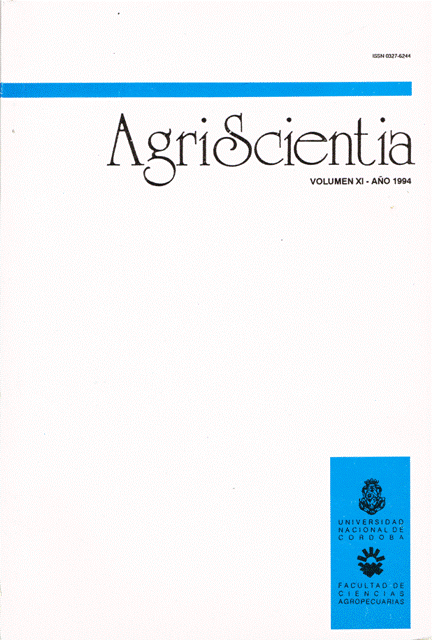Farming systems in northwestern Córdoba (Argentina): A case study in the districts of the Ischilín Department
Main Article Content
Abstract
A study based on the systemic approach was carried out to analyze the production units in two poor rural communities in the Northwest of Córdoba. The production units studied fall into two categories: one composed mainly of stock farmers (SF) and the other mostly of craftsmen (H). The case study method was used to collect data. Both the global system (the production unit) and its corresponding subsystems were fully analyzed in each case (SF and H). The size of each component and the flow of goods and labor among them were quantified, along with the flow of products, labor, and money between the production unit and the environment. The systemic features of balance, periodicity, and style—features that condition the internal balance of the production unit—were analyzed. The results showed that both systems—the SF system and the H system—share the same economic criteria. However, they exhibit well-defined differences regarding structural limitations, production strategies, internal complexity, and interaction with the environment. Despite the higher internal balance exhibited by the H system at present, it is more vulnerable to potential external or internal changes due to its meager capital input, limited natural resources, and highly asymmetric interaction with the markets.
Article Details

This work is licensed under a Creative Commons Attribution-ShareAlike 4.0 International License.





